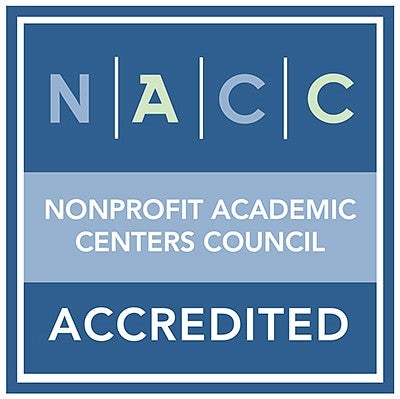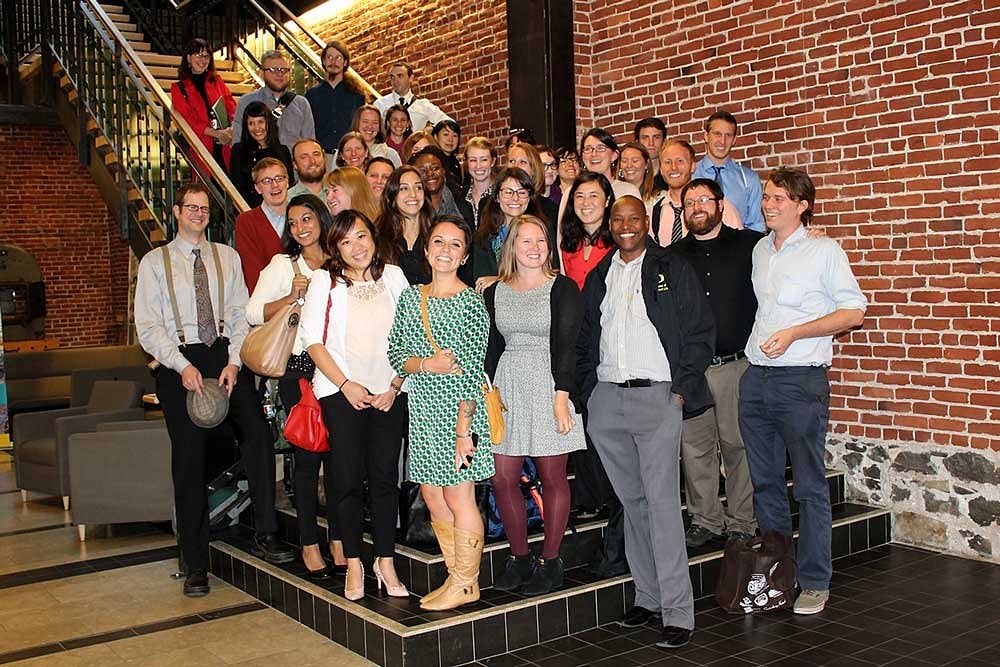Degree Requirements | Core Courses | Fields of Interest | Internship | Capstone Project | Faculty | Sample Curriculum Outline
Application Available: After October 1, the preceding year.
Application Deadline: February 1 is the deadline for priority acceptance. If space is available after the February admissions round, we will review qualified applicants monthly. Students typically begin the program fall term, but under certain exceptional circumstances, may start mid-year.
Application Decision: The admissions committee meets after February 1 to evaluate completed applications. Applicants will be notified by email of their admission status.
Information Sessions: We will be holding virtual information sessions for prospective students on Friday, November 7, 2025, and Friday, January 9, 2026. Please RSVP to Bob Choquette (choquett@uoregon.edu) if you’d like to attend either session.
Contact Us
Contact Bob Choquette (choquett@uoregon.edu) with questions about admissions procedures and Associate Professor Dyana Mason (dmason@uoregon.edu), faculty director of the Nonprofit Management Program, with questions about the curriculum.
Degree Overview: Master of Nonprofit Management
In as little as 12 months you can complete the Master of Nonprofit Management (MNM). The MNM is a comprehensive professional graduate degree focusing on management and leadership in nonprofit organizations. Coursework covers practical, hands-on skills, including nonprofit financial management, grant writing, fundraising, and management. The curriculum enables you to graduate with specific nonprofit leadership skills critical for pushing nonprofit organizations and foundations forward.
The Master of Nonprofit Management degree focuses on management and governance skills specific to the nonprofit sector, including:
- fundraising
- financial management
- role of a board of directors
- strategic thinking for working with a broad range of community partners and stakeholders
Right Fit for You
We seek passionate students who want to lead organizations, serve communities, and change the world. Many of our students are career-changers, seeking to move from for-profit sector careers to nonprofit ones. Others may have worked as volunteers in their community or at schools. To support your professional growth, we have a career services director who will help you identify your targeted professional career path and build a plan to achieve it. Our students are in high demand by nonprofit employers and are also competitive in their applications for prestigious internship and fellowship programs.
Hands-on Learning
All of these functions are very different or absent from the for-profit and government contexts featured in MBA and MPA degrees. For example, you will understand how foundations make funding decisions as your class makes a large grant to a regional nonprofit chosen by students. During your studies, you will serve on a nonprofit board of your choosing. And in the Nonprofit Consultancy course, you will work with organizations to tackle problems they’ve asked for help with.
Program Timeline
For full-time students, the program takes 12 months to complete. In addition, many working professionals can complete the requirements in 2 to 3 years at part-time status. Your advisor will help you design a course sequencing plan that works for your schedule.
Tuition rates per term depend on the number of credits you take and your residency status. Please see the Office of the Registrar's website and select "Graduate (Planning, Public Policy and Management)" under Student Classification for current tuition rates.
Careers
Students involved in our program span a range from recent college graduates to those who have worked in the nonprofit sector for decades. For mid-career and working professionals, the degree can help you round out your skills and prepare you for advancement in your organization or field. Our wide range of electives, both in our department and across campus, also helps you develop expertise in areas not traditionally associated with a nonprofit management degree, including social entrepreneurship, youth development, or global studies. Many of our students have law and graduate degrees in other fields and are returning to school to obtain the specific expertise to lead nonprofit organizations.
Recent graduates of the program have obtained positions such as:
- statewide coordinator for a network of social service organizations
- food bank development associate
- membership and giving manager with an arts organization
- communications specialist for a health policy institute
Accredited

The Master of Nonprofit Management Program was the first in the world to be accredited by the Nonprofit Academic Centers Council. Our faculty expertise, breadth of nonprofit coursework, and mix of students from around the globe provide you with an immersive experience that will shape your career trajectory.
Unique Aspects of the Master of Nonprofit Management Program
- Our programs are unique in being highly hands-on—working in real-life contexts—and intensely focused on the skills you will need to be a nonprofit leader.
- We are proud of our supportive learning environment, where our classes and cohorts are small (approximately 25 students per year) and provide you with an opportunity to build life-long relationships with your classmates.
- Our curriculum emphasizes applying classroom learning to current and vital nonprofit issues. Students are required to serve on the board of a nonprofit organization and complete administrative projects for nonprofit organizations or foundations at multiple points in the degree program.
- The University of Oregon is a leading public research university. Master of nonprofit management students have the flexibility to customize their concentration course work to take advantage of offerings throughout the university, including the highly ranked Knight School of Law, Lundquist College of Business, and other departments.
- Oregon is an exciting place to study and administer nonprofit organizations and foundations. The state and region have a vibrant nonprofit sector at the forefront of innovative nonprofit and philanthropic leadership. We are proud to play a pivotal role in the sector and in establishing best practices for organizations worldwide.
- Our location in Eugene, Oregon, provides easy access to some of the most beautiful places in the country—just one hour to either the Coast or Cascades, with hiking and biking trails across the region.
Faculty Spotlight
Professor
Renee Irvin
In the nonprofit world, large donations from the richest Americans are growing in size, and their proportion of total giving is rising as well. That is one observation by PPPM Professor Renee Irvin in an article for The Conversation, “What’s a major donor? A fundraising expert explains.”
Irvin sheds light on other aspects of philanthropy, too, from “ultra-high net-worth individuals” to capital campaigns.

Master of Nonprofit Management Degree Requirements (54 Credits)
The 54-credit program prepares students to become effective and creative leaders in the nonprofit sector. The program includes four components:
- Core courses: 33 credits
- Elective Field of Interest: 9 credits
- Internship: 3 credits
- Capstone Project: 9 credits

Master of Nonprofit Management Required Courses
Core Courses
The required core courses provide students with the financial, revenue development, and management skills to be effective leaders in the nonprofit sector. Courses are usually scheduled in the late afternoon and evening to allow working professionals access to them (for example, once per week from 4 to 7 p.m.). All required courses are offered annually, with the exception of Grant Proposal Writing (quarterly) and some courses with duplicate sections in the summer term.
- PPPM 522 Grant Proposal Writing (1 Credit)
- PPPM 581 Fundraising for Nonprofit Organizations (4 Credits)
- PPPM 586 Philanthropy and Grantmaking (2 Credits)
- PPPM 615 Foundations of Applied Analysis (4 Credits)
- PPPM 618 Public Sector Theory (4 Credits)
- PPPM 623 Professional Development (1 Credit)
- Analytic skills course: quantitative analysis, qualitative analysis, or survey methods (4 Credits)
- PPPM 680 Managing Nonprofit Organizations (4 Credits)
- PPPM 684 Public and Nonprofit Financial Management (4 Credits)
- PPPM 687 Nonprofit Board Governance (3 Credits, 1 Credit Each Term)
- PPPM 638/639 Capstone (9 Credits)
Course Descriptions

Master of Nonprofit Management Fields of Interest (20 Credits)
Master of nonprofit management students complete a minimum of 20 elective credits in a field of interest. You may choose from the list below or design your own in consultation with your faculty advisor.
Click on the links below to see a description and sample list of elective courses for each field of interest. Course offerings change, so sample course lists may not include courses of interest to you or may include courses unavailable in the coming year. Courses marked with an * indicate a special course designation. This may indicate that instructor approval is needed to register for the course, the schedule is irregular, or course fees apply. Check the UO Course Catalog for more specific information.
Internship and Professional Development Training (3 Credits)
There are two components of the master of nonprofit management internship requirement:
- Enrollment in the Internship and Professional Development courses (PPPM 623, 1 credit; PPPM 663, 1 credit)
Students begin the course during orientation week and continue through the fall term of their first year. Through this course, students identify their career goals and develop a plan to prepare themselves to meet the goals. This work is continued in PPPM 663 in the spring term. Students identify summer internship and post-graduation fellowship opportunities. - Completion of an internship (PPPM 604, 3 credits)
Internships offer students opportunities to explore and clarify career goals, apply academic learning, enhance and learn new skills, gain experience, and network with professionals. Unlike jobs, internships are supervised training experiences with the explicit intent of developing skills. Internships are highly recommended for all master of nonprofit management students and required for those with fewer than two years of relevant professional experience.
Students are required to enroll in three pass/fail credits of PPPM 604 Internship. In collaboration with the internship site supervisor and the Internship Director, students identify learning goals and outline specific tasks and responsibilities that support these goals. By achieving their learning goals, students acquire a set of transferable skills and real-world experiences that prepare them for professional positions, fellowships, or further academic study. Gaining relevant professional experience beyond the three credits is highly recommended. Students may do so either for credit or not for credit.
Management Sequence and Capstone Project (18 Credits)
Master of nonprofit management students complete the Management Sequence, which involves specialized coursework in management topics. For the Capstone project, students complete the two Capstone courses (PPPM 638 and PPPM 639).
9 credits from the following*:
PPPM 507 Strategic Communications (4 Credits)
PPPM 507 Public Sector Leadership (2 Credits)
PPPM 507 Advocacy/Lobbying Seminar (2 Credits)
PPPM 510 Community Organizing (4 Credits)
PPPM 518 Intro to Public Law (4 Credits)
PPPM 525 Project Management (4 Credits)
PPPM 526 Strategic Planning for Management (4 Credits)
PPPM 532 Justice & Urban Revitalization (4 Credits)
PPPM 548 Collaboration (4 Credits)
PPPM 552 Public Participation Diverse Communities (prerequisite: 532) (4 Credits)
PPPM 565 Program Evaluation (4 Credits)
PPPM 510/576 Museum Practice (offered alternating years) (4 Credits)
PPPM 510/574 Event Management (4 Credits)
PPPM 573 Cultural Programming (4 Credits)
PPPM 510/577 Museum Education (offered alternating years) (4 Credits)
PPPM 570 The Arts in Society (4 Credits)
PPPM 572 Creative Placemaking (4 Credits)
PPPM 575 Performing Arts Management (offered alternating years) (4 Credits)
PPPM 583 Volunteer Resource Management (2 Credits)
PPPM 587 Impact Philanthropy (4 Credits)
PPPM 588 Nonprofit Legal Issues (4 Credits)
PPPM 610 Visual Communications (4 Credits)
PPPM 625 and 626 Community Planning Workshops I & II (10 Credits Total)
PPPM 633 Public Management (4 Credits)
PPPM 670 Cultural Administration (4 Credits)
PPPM 685 Social Enterprise (4 Credits)
CRES 610 Nonprofit Law/Mgmt Clinic (6 Credits Total)
CRES 631 Managing Conflict in Organizations (3 Credits)
GLBL 522 Aid to Developing Countries (4 Credits)
MGMT 623 Negotiation (3 Credits)
MGMT 625 New Venture Planning (3 Credits)
Plus:
PPPM 638 Capstone I and PPPM 639 Capstone II (required, 9 Credits)
*Other courses may be approved for Management Sequence credit on an individual basis. There are many options, too numerous to list here.
Sample Curriculum Outline
Fall Term
14 Credits
PPPM 615 Foundations of Applied Analysis
4 Credits
PPPM 618 Public Sector Theory
5 Credits
PPPM 623 Professional Development I
1 Credits
PPPM 680 Managing Nonprofits
4 Credit
PPPM 687 Board Governance
1 Credit
Winter Term
14-16 Credits
PPPM 581 Fundraising for Nonprofit Organizations
4 Credits
PPPM 663 Professional Development II
1 Credits
PPPM 687 Board Governance
1 Credits
Analytic skills course: quantitative analysis, qualitative analysis, or survey methods
4 Credits
Elective or Internship
4-6 Credits
Spring Term
13-14 Credits
PPPM 586 Philanthropy and Grantmaking Seminar
2 Credit
PPPM 638 Capstone I
3 Credits
PPPM 684 Public and Nonprofit Financial Management
4 Credits
PPPM 687 Board Governance
1 Credits
Elective or Internship
3-4 Credits
Summer Term
14-16 Credits
PPPM 522 Grant Proposal Writing
1 Credits
PPPM 639 Capstone II
6 Credits
Elective
4-8 Credits
Internship (can be completed during the academic year)
3-6 Credits
Master of Nonprofit Associated Faculty
To learn more about the faculty members in the School of Planning, Public Policy and Management currently engaged in research and teaching relating to the nonprofit sector, visit the faculty directory.
The School of Planning, Public Policy and Management is a full institutional member of the Nonprofit Academic Centers Council (NACC).

Give to Nonprofit Programs
Donors make it all possible. Private gifts enable our faculty members and students to cross boundaries, share ideas, and innovate.
